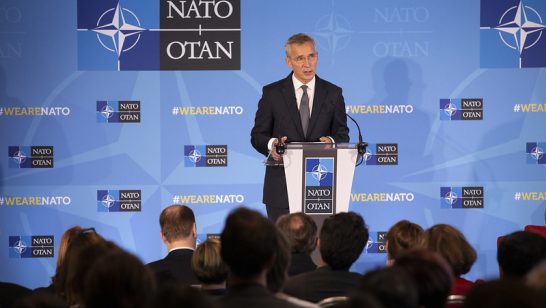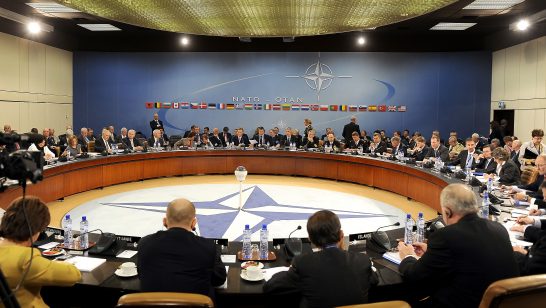
The uncertain implementation of the fragile Minsk 2 cease fire agreement in eastern Ukraine has paused the debate in the United States and Europe over whether or not to provide the Ukrainian military with “defensive lethal assistance.” That debate will almost certainly pick up steam again, in particular if Ukrainian separatists supported by Russia continue to attack the Ukrainian armed forces in and around Debaltseve in violation of Minsk 2. Yet even if defensive lethal assistance as now envisioned could be rushed to the Ukrainian battlefield and used effectively by the Ukrainian armed forces, it is unlikely to deliver a change to the strategic military balance on the ground in the short-term, and hence in part is a dangerous distraction. What is needed now is a much broader effort to address Ukraine’s short term economic crisis, support its political and economic reform, tackle corruption, and reform its police and judiciary. That effort should definitely include long term support for Ukraine to modernise, equip, professionalize and make fully democratically accountable its military and security institutions.
The arguments against arming Ukraine now with defensive lethal assistance, including light anti-armour missiles, have been well rehearsed. Simply stated, it is difficult to imagine the scale of assistance suggested by some in the US being sufficient to deter Russia from continuing its support for the Ukrainian separatists and their current efforts to draw a more coherent and defensible political and military line in the separatist eastern regions. And while it may be unlikely that such military assistance would be sufficient to trigger new Russian backed military offensives that otherwise had been unintended, there is a more than negligible risk that Russia could respond by escalating the conflict even further.
The policy implication of this sobering conclusion is that Chancellor Merkel, President Hollande and President Poroshenko were right to pursue a diplomatic solution that has some chance of effectively “freezing” the conflict in eastern Ukraine and stopping the killing. The looming problem for the West, however, relates to what comes next in Ukraine, no matter how effective the implementation of the Minsk 2 agreement is over the next 10 months.
One point should now be clear: sanctions by themselves do not amount to a comprehensive strategic response to what is going on. Several recent independent assessments of Western sanctions on the Russian economy concur that the most likely impact is of prolonged stagnation. This will hurt many in Russia but may not impact Russian decision-making or help Ukraine. Moreover, the option of further strengthening sanctions to the extent that they would have a greater impact on the Russian economy may not be a viable option, not least because there is great nervousness (in many European capitals) at the consequences of what would effectively be an attempt to turn Russia into a nuclear armed failed state. The increased economic damage such a policy would do to the rest of Europe is also at the forefront of policy-makers minds.
However, if one imagines a scenario in which the West both refuses to arm Ukraine and sanctions fail to modify Russian policy towards de-escalation and a political resolution of the conflict, then the West will be perilously close to accepting an outcome with profoundly negative consequences not only for Ukraine but for the entire system of international relations in Europe.
It is one thing to say that attempts to rush defensive lethal assistance to help Ukraine fight a war with Russia in the weeks and months ahead are unlikely to deliver the advertised strategic effect. It is quite another to say that Ukraine should not receive any support to modernise and strengthen its military, period, or until a comprehensive settlement of all issues with Russia is reached.
The latter position gives President Putin a veto over Ukraine’s legal and moral right to defend itself. In the context of a demonstrated Western unwillingness, for very good reason, to fight a war with Russia in the Eastern part of Ukraine, he could read it as a green light to intimidate other governments in the region as he sees fit. Amid all the Western talk that there can be no privileged spheres of influence, this would be tantamount to conceding him one.
To avoid this outcome, the West must focus not so much on emergency defensive lethal aid for use on today’s battlefield, but on targeted assistance to the Ukrainian military that strengthens its capacity and effectiveness in the long-term. The Ukrainian military also needs to be embedded in a web of democratically accountable institutions that are loyal to, and provide the physical security for, the future economic and political development of Ukraine and its people. This long-term support needs to focus on the training of Ukrainian military personnel and on providing them with effective and secure command, control and communication facilities.
The recent announcement by a senior US military official that the US will send troops to train three battalions of Ukrainians from the Interior Ministry at the Yavariv training center in the western Ukrainian city of Lviv is a useful start. Provision of further training and non-lethal materiel support from other NATO countries and partners should also be encouraged. Ukraine can be helped to buy the weapons systems it needs on the open market from many countries, including those outside NATO, if need be. It can also be helped to manufacture at least some of what it needs domestically.
None of this assistance will work however, if it is carried out as a quick fix or in the absence of the wider reform that Ukraine needs. In the end, as President Niinisto of Finland said in little noticed comments at the Munich Security Conference on 7th February, if Ukraine can build a democratic, stable, prosperous and socially just state and society that all of its citizens value and wish to defend, it is this, more than anything else, that will be the best long-term guarantee of its security.
The opinions articulated above represent the views of the author(s), and do not necessarily reflect the position of the European Leadership Network or any of its members. The ELN’s aim is to encourage debates that will help develop Europe’s capacity to address the pressing foreign, defence, and security challenges of our time.





